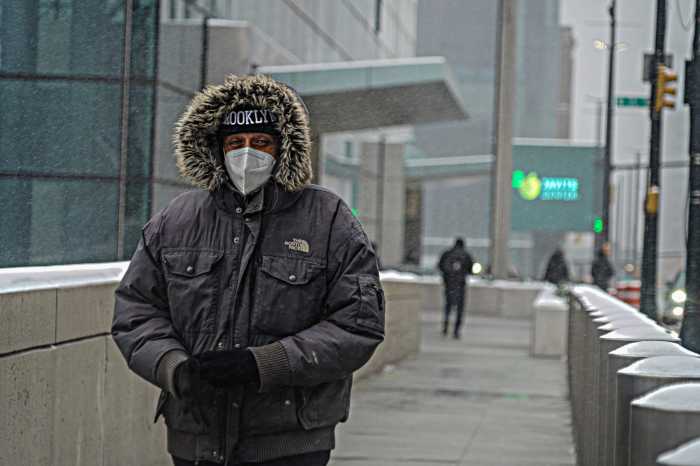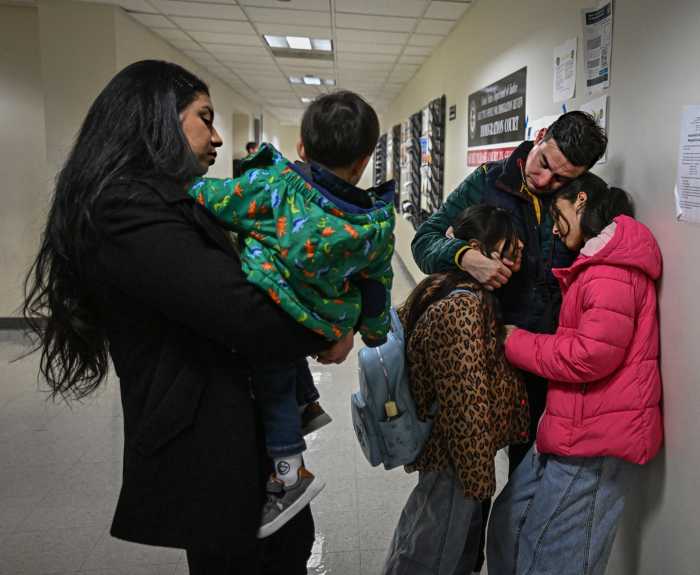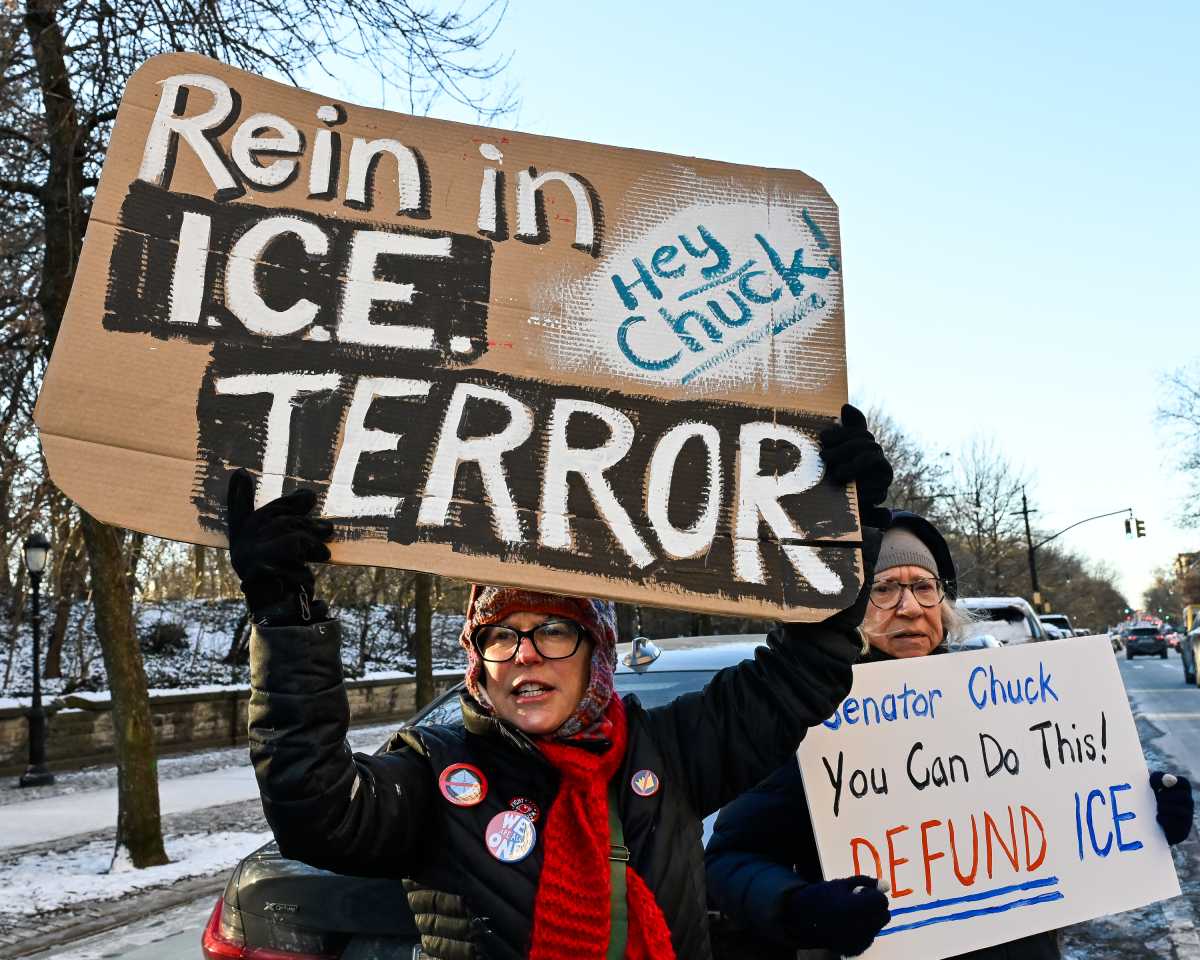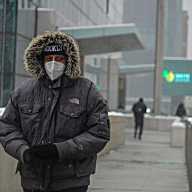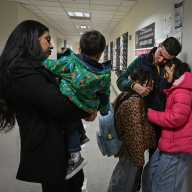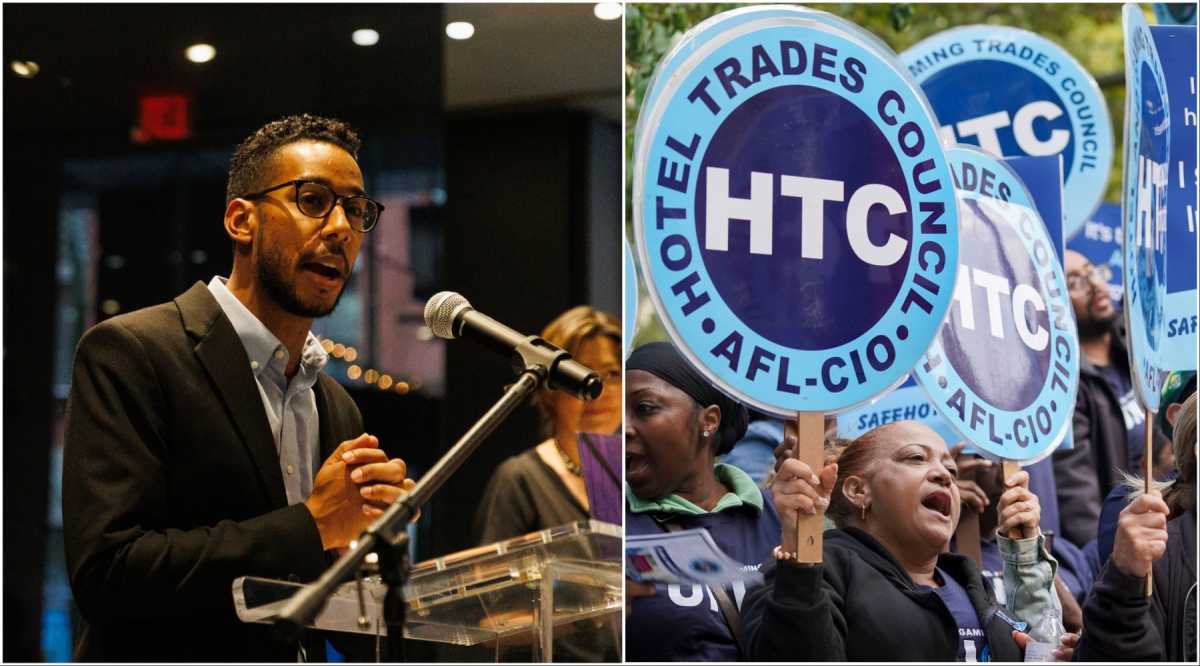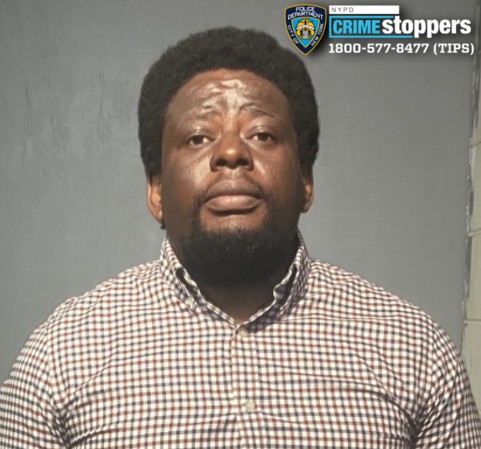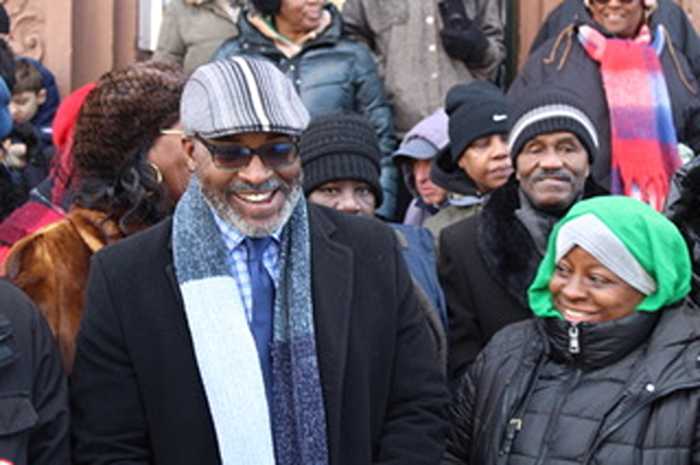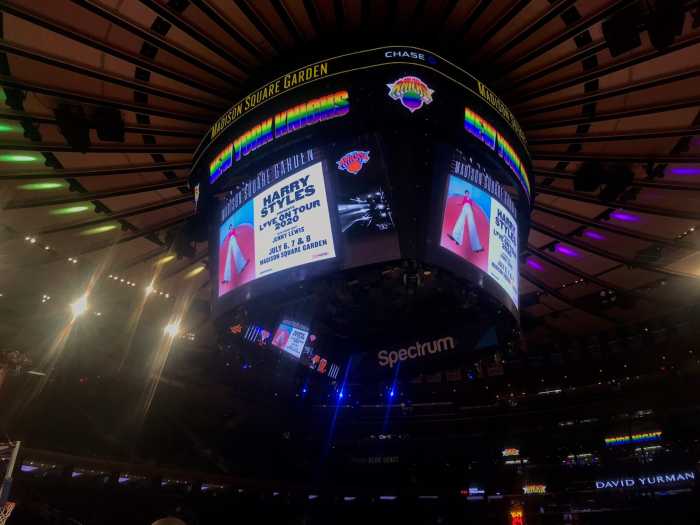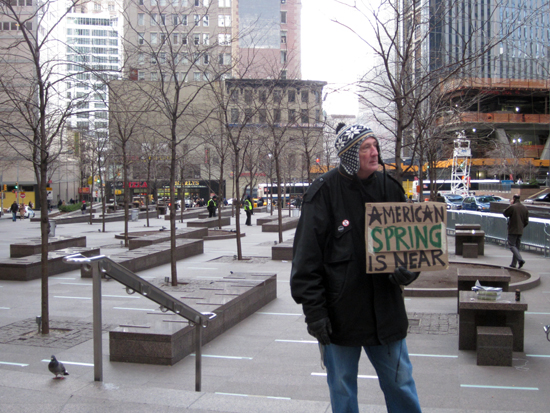
BY ZACH WILLIAMS | Zuccotti Park remains as much an inspiration as a flashpoint for the Occupy Wall Street movement, and that fact seems unlikely to change as the promised “American Spring” draws near.
Occupiers congregated at Zuccotti late last Thursday night following a march against major corporation’s influence on national politics. Dozens entered the park, some carrying blankets and sleeping bags, in a move interpreted by the NYPD as a direct challenge to rules against sleeping in what was the movement’s former home base. Eight activists were arrested early Friday morning.
Since the Nov. 15 eviction, ‘occupiers’ have challenged the NYPD’s authority to govern the space, which is open to the public and owned by Brookfield Properties. The arrests Friday morning followed a period of relative calm where tensions between police, private security and activists had lessened to a certain degree. A small group of activists have tried to maintain an around-the-clock presence in the park and some are predicting it will continue to serve as prominent location once the movement steps up activities in the spring.
“Once spring [arrives] it’s going to be a whole new ball game,” said Ed Mortimer, an O.W.S. medic. “By the time summer comes around, it’s going to be big, with big actions all the time.”
While activists have high expectations for springtime, the movement remains decentralized with different groups pursuing different avenues aimed at expanding its base of support. A veteran of protest movements from the 1960s, Larry Lawrence said Monday that he wanted to see greater cooperation between the movement and leftist political groups in order to draw larger crowds to the park and attract more local support.
“We need a continued presence here because the Bloomberg administration and the police think that they defeated Occupy Wall Street because, as you can see, the crowds are not very great,” said Lawrence. “But we can get more people here in the park.”
The park wields an influence on the movement independent of its physical boundaries. Activists said that the many lessons learned have been practical in nature, including how to best organize resources and attract support within the local community. The national arm of the movement is focused on organizing for May protests in Chicago. It was targeting the G-8 Summit until Monday, when it was announced that the location for the summit had been changed to Camp David in Maryland. However the NATO conference is still scheduled for the end of May in the “Windy City.”
The experience of street medics at the Zuccotti Park encampment for example will play a role in training medical staff for the Chicago protests, said Mortimer. He added that he plans to travel with colleagues this week to Chicago to help set up medical facilities. Other organizers said that relationships that blossomed at the Zuccotti encampment with labor unions and local community leaders continue to help the movement organize demonstrations.
Local residents should expect a more mature approach from the movement compared to last year, when noise and hygiene issues defined the relationship between the movement and nearby residents, said Justin Stone Diaz, an O.W.S. information coordinator.
At the onset of the movement, activists “assumed consent” rather than sufficiently coordinating with the local community to avoid problems such as loud drumming which needlessly alienated potential supporters, according to Diaz.
“A lot of the complaints came from misunderstanding and us having a situation outside of our control,” said Diaz, who added, “We were naive and childish to use that thinking … we had to learn through experience.”
For now, the movement has retained a low profile Downtown, despite occasional confrontations with NYPD at the park. Small demonstrations throughout Lower Manhattan in recent weeks were aimed at gathering momentum for May. According to Diaz, events such as “Occupy Fashion” and “Occupy the Corporations” demonstrated a new “boutique” approach for the movement.
“What we are doing is really directing outreach protest to engage the people in those communities that we haven’t really made much traction in,” said Diaz, who noted that organizing only “goes so far” in crafting the future direction of a movement known as much for its unpredictability as for its growing sophistication and presence nationwide.
“The problem is we have so many affinity groups and so many people working under the banner of ‘Occupy Wall Street’ that you see more radical things,” Diaz said. “That’s where you see the direct actions where they lock themselves down, but the key is understanding us.”
The need of the movement to shore up its finances is causing additional headaches for organizers concerned with maintaining the leaderless organization that has defined the movement. A recently created non-profit supported by organic ice cream producers and progressive activists Ben Cohen and Jerry Greenfield and others may be a mixed blessing, according to some occupiers.
The non-profit aims to shore up funding for the movement by raising $1.8 million.
In an open letter to the movement members, eight former members of a group previously charged with fundraising warned that the establishment of the Movement Resource Group (MRG) could challenge the authority of the New York City General Assembly which ostensibly governs the local movement.
Among the concerns listed in the letter is that the Movement Resource Group undermines the leaderless nature of Occupy Wall Street, utilizes corporate governing structures and methods and dilutes the egalitarian values of the movement.
Under the plan, some activists would receive stipends, which would turn them into “employees” of the group, states the letter.
“By appointing a paid few to speak for the 99 percent MRG subverts the spirit of the Occupy movement and thus may actually prevent an authentically national Occupy movement from synthesizing,” the letter states. “We have only a few unbreakable laws within O.W.S., the most important of them being ‘don’t speak for us.’”




